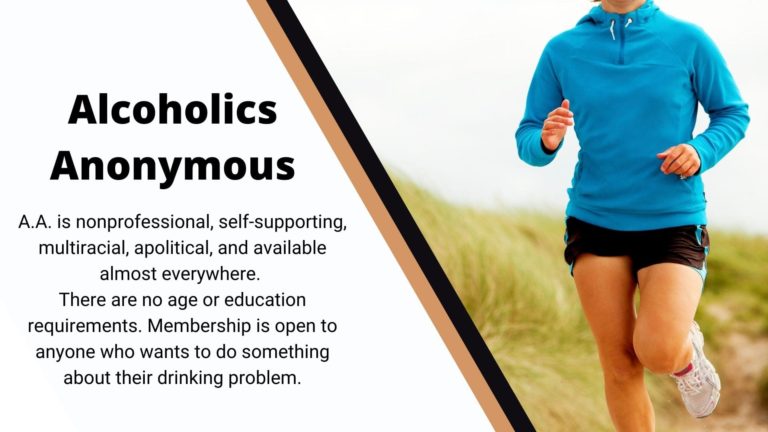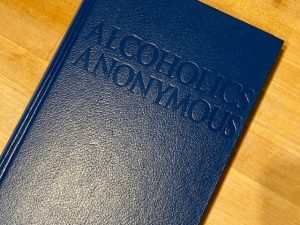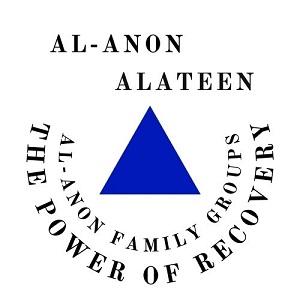24 Hour Helpline 510-839-8900 English 510-502-8560 Espanol Helplines are staffed 24/7 by A.A. member volunteers who have solved their drinking problem.
24 Hour Helpline 510-839-8900 English 510-502-8560 Espanol Helplines are staffed 24/7 by A.A. member volunteers who have solved their drinking problem.
The primary purpose of East Bay Intergroup is to help inform the greater community about AA
and alcoholism so that those who need help can find recovery from alcoholism.
Eastbay Intergroup is an organization created and sustained by AA groups in the San Francisco East Bay.
Hard of Hearing:
Call 711 and request (510) 839-8900
Email help@eastbayaa.org
To understand the solution, we must first understand the problem.
The AA approach to the disease of alcoholism is holistic.
AA is a program of recovery for body, mind, and spirit.
Alcoholism is an illness that affects people of all ages, socioeconomic backgrounds, genders,
abilities, orientations, nationalities, cultures, ethnicities and beliefs.
A.A. is nonprofessional, self-supporting, multiracial, apolitical, and available almost everywhere.
There are no age or education requirements.
Membership is open to anyone who wants to do something about their drinking problem.
There are no fees or dues to attend an AA meeting. Everyone is welcome to attend meetings without charge.
“There are many different ideas about what alcoholism really is.
The explanation that seems to make sense to most AA members is that alcoholism is an illness, a progressive illness, which can never be cured but which, like some other diseases, can be arrested. Going one step further, many AA’s feel that the illness represents the combination of a physical sensitivity to alcohol and a mental obsession with drinking, which, regardless of consequences, cannot be broken by willpower alone.
Before they are exposed to AA, many alcoholics who are unable to stop drinking think of themselves as morally weak or, possibly, mentally unbalanced. The AA concept is that alcoholics are sick people who can recover if they will follow a simple program that has proved successful for millions of people.
Loss of control for the alcoholic is not measured by how long one drinks or how much one drinks.
When your life feels out of control, you think drinking might have something to do with it, it usually does.
Not too long ago, alcoholism was viewed as a moral problem. Today, many regard it as a primarily health problem.
To each problem drinker, it will always remain an intensely personal matter. Alcoholics who approach AA frequently ask questions that apply to their own experience, their own fears, and their own hopes for a better way of life.”
Alcoholics Anonymous World Services, Inc. Frequently asked questions about AA, P-2

Nonprofessional
AA has no interest in discouraging others in their efforts to find solutions to the age-old problem of alcoholism.
The AA organization has no opinion on any other subjects, including alcohol reform, detox, alcoholism treatment, social issues, politics, or religion. AA does not oppose medical professionals that are researching other solutions for alcoholism.
AA does not affiliate with other entities or organizations. AA will cooperate with anyone to help the still suffering. Members of AA outreach committees are trained to bring presentations to any group or organization that might better help the still-suffering alcoholic.
AA is Self-Supporting with Member Contributions.
The AA organization is owned and run by the voluntary contributions of its members.
AA is fully self-supporting through its members’ contributions. Contributions have an annual limit
so that no one member can influence the organization.
AA is a true democracy. Each AA group is autonomous but each group should participate in the operational
efforts and decisions of the AA organization in each region or country.
The founders of AA started as a community of alcoholics helping others get sober and find recovery. They soon realized their program of recovery could help alcoholics around the world. As they began the organization, they realized money could destroy the program that saved their lives, and the recovery community they had grown to love.
Alcoholics Anonymous is not an anonymous organization.
Members remain anonymous to protect the organization, their professional and private lives, the lives of others and most importantly, those seeking help with their drinking problem.
The Primary Purpose; to carry the message of recovery to the still suffering alcoholic.
From its beginning, AA welcomed people from all walks of life, just as it does today.
The only requirement for membership is a desire to stop drinking.
AA is not a religious organization.
Religion or Spiritual;
One misconception of AA is that it is a religious program. It is neither affiliated with nor endorses any religious belief or dogma. Members of AA range from the hard and fast beliefs of atheism to the most ardent of religious devotees from every denomination, sect, and culture. AA does not endorse nor oppose any other organization or profession.
The spiritual experience in AA is as varied as its members. Each person finds their own truth about their drinking problem.
Many recovered alcoholics refer to their truth as a spiritual experience.
“We found that we could help the still suffering where others had failed”


Our basic text, also known as the “Big Book,” includes clear cut directions for recovery, as well as many personal stories of those who have used the program to solve their problem.
“We think it no concern of ours what religious bodies our members identify themselves with as individuals. This should be an entirely personal affair which each one decides for himself in the light of past associations, or his present choice. Not all of us join religious bodies, but most of us favor such memberships.
In the following chapter, there appears an explanation of alcoholism, as we understand it, then a chapter addressed to the agnostic. Many who once were in this class are now among our members. Surprisingly enough, we find such convictions no great obstacle to a
spiritual experience.
Further on, clear-cut directions are given showing how we recovered. These are followed by forty-three personal experiences.
Each individual, in the personal stories, describes in his own language and from his own point of view the way he established his relationship with God. These give a fair cross section of our membership and a clear-cut idea of what has actually happened in their lives.
We hope no one will consider these self-revealing accounts in bad taste. Our hope is that many alcoholic men and women, desperately in need, will see these pages, and we believe that it is only by fully disclosing ourselves and our problems that they will be persuaded to
say, “Yes, I am one of them too; I must have this thing.” – Alcoholics Anonymous, Pg. 28
ASL is the acronym for American Sign Language. An ASL interpreted meeting or AA workshop makes it
possible for Deaf alcoholics to share their message of experience, strength and hope with you. With
ASL interpretation, you will be able to carry the message to the Deaf alcoholics.
Deaf alcoholics may not have access to daily meetings which has gotten countless of hearing
alcoholics sober. Remember that Deaf/Hard-of hearing alcoholics are like any other
alcoholic –they just have a different way of communicating.
Help them to feel welcome by including them. Communicate by speaking clearly (some Deaf/Hard-of-hearing people can read lips), using your Smartphone to text them, or using pen and paper.
Let the Deaf/Hard-of-hearing person know there are ASL interpreted meetings and AA materials available.
Offer them a newcomer packet if your group has them. In addition, ask if they would like to have a
Deaf person in recovery contact them.

AA does not affiliate with any other organization,
we will cooperate with anyone to help the still suffering alcoholic.
AMOT Audio has an extensive library of meetings recorded for the hard of hearing or deaf AA, Al-Anon, Alateen members.
The audio files are the speakers voice, the video is the ASL interpreter.
AMOT Audio is a family-owned, full service recording and high speed audio duplicating company. Dedicated to carrying Al-Anon, Alateen, and AA Speaker messages, we provide not only instant on-site duplications of audio files and CD’s, but also numerous other services. If you would like us to record speakers at your event, please contact us at (773) 382-8714. We would be happy to discuss how we can be of service to you and your attendees.

Alcoholism frequently affects the loved ones of alcoholics. Al-Anon uses the shared experience of its members to help newcomers better understand alcoholism, and find support from others who have faced similar experiences.
Al-Anon Family Groups is a Twelve Step program of recovery. Their members are made up of people concerned with someone’s drinking problem.
Join our newsletter and stay up to date with all the latest information from our Central Office!
The primary purpose of East Bay Intergroup, Inc. is to help inform the greater community about AA and alcoholism so that those who need help
can find recovery from alcoholism.
East Bay Intergroup is an organization created and sustained by AA groups in the San Francisco East Bay.
| Cookie | Duration | Description |
|---|---|---|
| cookielawinfo-checkbox-analytics | 11 months | This cookie is set by GDPR Cookie Consent plugin. The cookie is used to store the user consent for the cookies in the category "Analytics". |
| cookielawinfo-checkbox-functional | 11 months | The cookie is set by GDPR cookie consent to record the user consent for the cookies in the category "Functional". |
| cookielawinfo-checkbox-necessary | 11 months | This cookie is set by GDPR Cookie Consent plugin. The cookies is used to store the user consent for the cookies in the category "Necessary". |
| cookielawinfo-checkbox-others | 11 months | This cookie is set by GDPR Cookie Consent plugin. The cookie is used to store the user consent for the cookies in the category "Other. |
| cookielawinfo-checkbox-performance | 11 months | This cookie is set by GDPR Cookie Consent plugin. The cookie is used to store the user consent for the cookies in the category "Performance". |
| viewed_cookie_policy | 11 months | The cookie is set by the GDPR Cookie Consent plugin and is used to store whether or not user has consented to the use of cookies. It does not store any personal data. |